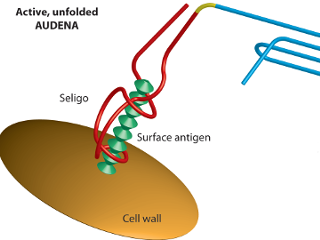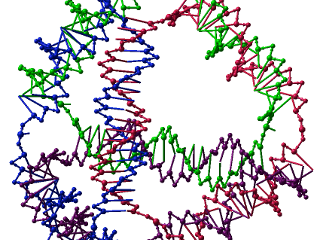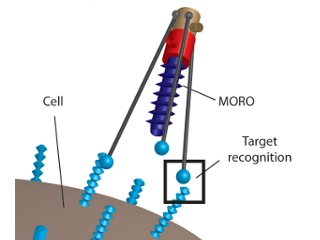About MARA
To meet these ambitious objectives, the project is driven by a multidisciplinary team of internationally leading experts.
The worldwide spread of multidrug resistant pathogens poses a great challenge to national healthcare sectors. The frequent use of antibiotics has led to a rise in antibiotic resistance which accounts for a growing number of deaths and also imposes an enormous burden on our healthcare system.
Alternative treatment strategies need to be developed and efficient epidemiological control measures implemented in order to prevent the further spread of multidrug resistant pathogens. Effective epidemiological control requires large-scale analysis of all patients potentially infected with bacterial pathogens as well as environmental samples. However, these analyses are currently not carried out for financial reasons.
Radically new technologies

AUDENA
MARA plans to use pure DNA as an inexpensive sensor which recognises target molecules in water-soluble substances and reacts by changing colour, a reaction which can be seen by the naked eye.

DNA Structures
DNA will also be assembled in a modular approach to form artificial enzymes for a wide variety
of applications.

MORO
In a third step, MARA aims at building functional DNA nanorobots that locate bacterial pathogens or tumour cells before destroying them by drilling through their cell walls.